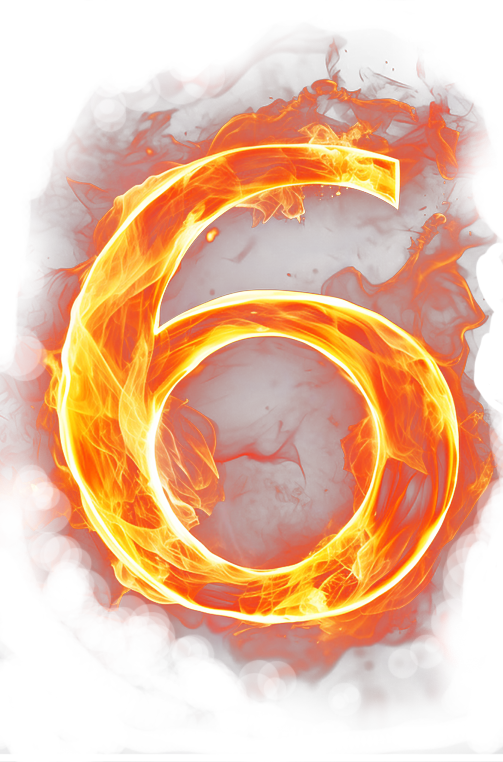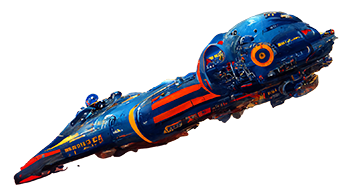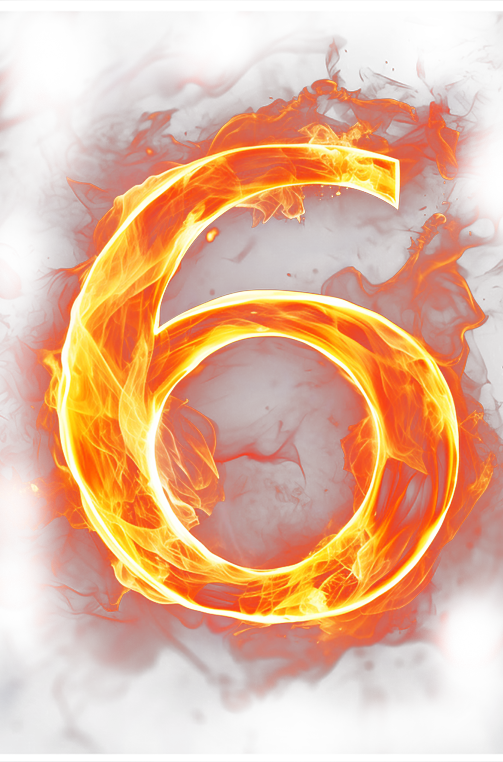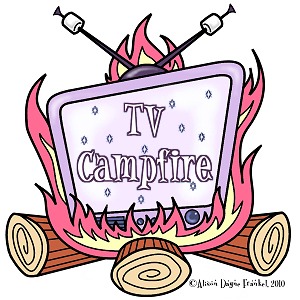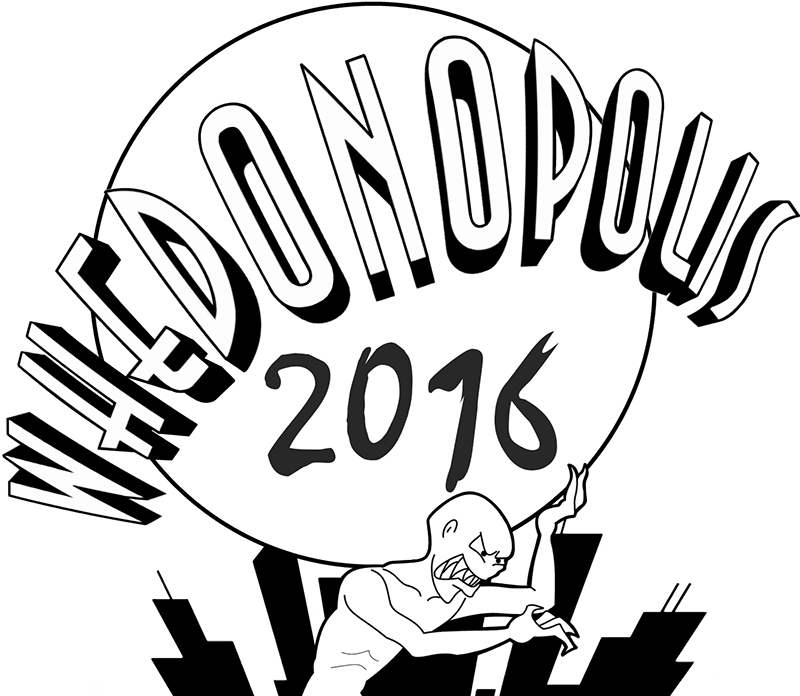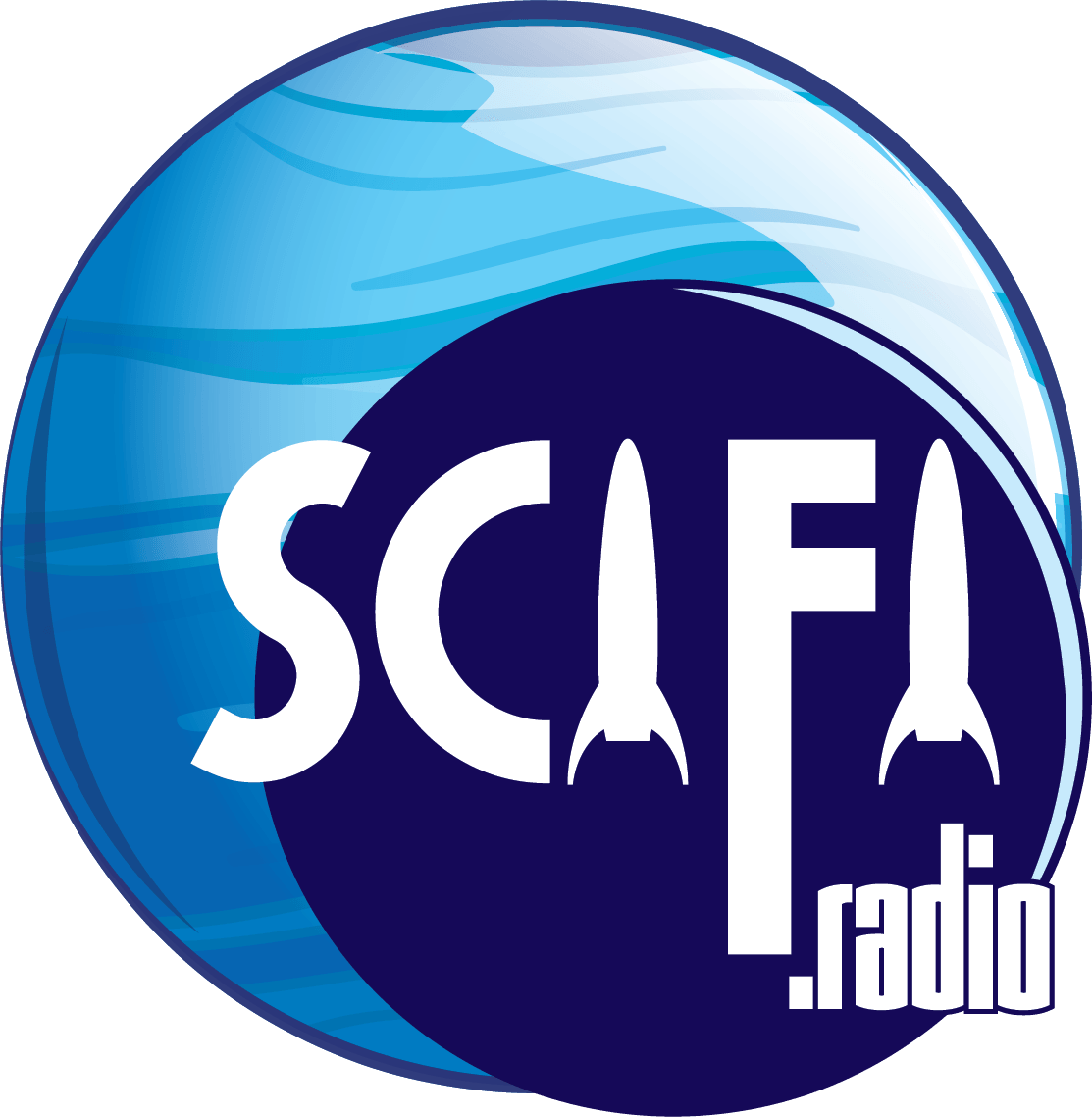First, it was Steven Moffat’s (new series writer and showrunner beginning next season) turn.
What is your aim / vision as executive producer of Doctor Who?
SM: Forty-five minutes of fantastic fun and adventure every Saturday for thirteen weeks. You can complicate the ambitions of a show like this or the intention of a show like this, but really it’s about terrific stories. Doctor Who doesn’t change with each new executive producer and it doesn’t necessarily change with each new star. It changes every single episode. Every episode of Doctor Who is different, so to have an overall stratagem or particular ambition for the series is wrong. You want it to be the best murder mystery ever one week and best horror movie the next and the best comedy the next so it doesn’t have one line of approach.
So far you’ve run shows that you’ve created. What’s it like to now run a show with a forty-five year old history / universe?
SM: Well, in this particular case it’s not terribly different because I know the forty-five year universe so incredibly well. I think recently I’ve found myself unable to remember a couple of titles of episodes of Coupling, which I wrote all of and I had to look it up on the internet and I still didn’t recognize them. The truth is I could probably do the titles [of Doctor Who] from the beginning. I know it all so it doesn’t feel all that different and I kind of feel a part of it already, so it’s OK. Good, hooray! I’ll just get beheaded if I *censormode* it up!
Well, you’ve already had some influence in the universe with the episodes you’ve written as well as Jenny still being alive…
SM: That’s been so wildly overstated. It sort of sounds like I sort of appeared on a balcony "No, Russell [T. Davies], you shall stop. The girl shall be saved!" No, I didn’t do that at all. When he was talking about it, he was just chatting to me by e-mail about the idea for the episode and I said, "Oh, don’t kill her. Star Trek would kill her. Leave her alive." And that’s as much as I remember so it was a shock to me when she came back to life and an even bigger shock when I learned it was my idea! So it was not really like that.
Do you have any plans to bring back any of the companions from either the old series or the new? Any of the characters you’ve created, perhaps?
SM: I’ll be honest, we always hesitate to bring back something. The fans always look back and the show always has to look forward. There’s a brand new audience every year, particularly for Doctor Who as it’s a children’s show. If I brought back Sally Sparrow in 2010, she hasn’t been on screen since 2007. It would be three years. For some kids that would be ancient history. I’m not against it, but it’s not what Doctor Who is about. I think Doctor Who is absolutely, centrally, being what it has to be when he walks out of the TARDIS and everything is new. That’s the format, he walks out and it’s completely new. No friends, no anything. Everything is brand new. You have to be careful that you don’t make the universe seem as though it’s got about seven people in it, all of them are going to be exterminated by Daleks once per season. You don’t want to do that. You want it to be a big, wide-ranging, unexpected universe.
You’re well known for scripts ending with everybody living, while Russell T. Davies (the current showrunner) is known for slaughtering people. How are you going to influence that once you’re the showrunner?
SM: In neither Russell’s case or mine is there actually an agenda here. There isn’t a death agenda, I can absolutely assure you. The way it fell for me, I was really surprised I hadn’t actually killed anyone. I’m still quite surprised I haven’t killed anyone. It wasn’t a plan. I haven’t the slightest compunction in offing minor characters or even major characters if that would help. Neither does Russell sit there giggling like a Welsh massacring bastard figuring out which Equity members he’s going to off. No, it will not have any effect at all ’cause it was an accident.
Many of the people involved in the making of the show were fans as children. Has that changed the character of the show or your attitude toward the show?
SM: No, because we all became television professionals for a long while before we glammed it up working on Doctor Who. That’s quite important. You don’t go from a fan writing an awful lot of Doctor Who stories and then start writing it professionally. That would not be a good way to go. You’ve got to know television. I know it sounds ridiculous as I’m always enthusing away on Doctor Who Confidential or interviews like this how we’re fans and we all are, but we know our stuff. We’ve been doing this for a while so we make the show we have to make. Sometimes you resist your own fannish impulses. ‘Cause, you know, we’re just as tragically obsessed as many in the audience, but some things wouldn’t work. It’s gotta be really important. Maybe this sums up this entire dichotomy perfectly is that it’s a new show every year because there are kids watching it for the very first time and they’ve got to think it’s theirs, not some relic, not some thing that belongs to their parents. You try to keep it brand new and particularly fresh. And they’ll remember it forever. Brand new is the opposite of being a fan of a long running show, obviously.
What fannish impulses are the hardest for you to resist?
SM: None of them, they’re easily resisted. Whatever fannish impulses I have, believe it or not, they’re easily sublimated by the fact I like to think in my more rampantly egotistical moments that I know how to write television. My biggest fannish impulse, and I’m sure this is true for any Doctor Who fan, is that I like to see it back on the telly being proper Doctor Who, not some sad old story for grown-ups but proper Doctor Who for kids with sticker books and lunchboxes. I enjoy seeing that again.
How far are you into season five of Doctor Who?
SM: They’re all finished two years in advance! Not very. I’ve started working and thinking. The reason I’m skirting all your questions isn’t because it’s some state secret, though obviously it is. It’s because that series of Doctor Who will not come out for almost two years. If I start talking about it now, it’s going to be old by the time it gets here. Yes, we’ve started talking and thinking and there’s some things I’m clear on, but you’re not going to get a single word out about what they are, unless I choose to tell lies, which I might. I am an official BBC employee. I am allowed to lie. Remember that: Steven Moffat, probably lies.
Russell T. Davies has said that when you turn in a script, he doesn’t have to change a word…
SM: That’s not what he said. He said he doesn’t polish [my scripts]. That doesn’t mean the script doesn’t get rewritten. I do it. He gives me notes and ideas. Russell is one of the all time great note givers. I recently sent him a script for an entirely different project just to get his notes because they’re helpful, they’re useful. It never happens where I just hand my script to the production team and they make it, nor would I want it to. That would be stupid. There’s always work [to do]. If you’re a good writer, and I hope that I am, then the heavy lifting is done in that first draft. There’s an awful lot of refinement. The first draft of "The Empty Child" two-parter did not contain the words "are you my mummy" or "everybody lives." "Blink" wasn’t called "Blink" and didn’t have the word "blink" in it. Even small changes are big and important. The idea that Russell wouldn’t have an opinion is too preposterous for words. Of course he should and so would I.
You’re known for writing some of the most terrifying episodes of Doctor Who. Do you thrive on the tears of small children?
SM: The children really are not that frightened. It’s a show that shows at seven o’clock. I mean it’s quite scary for a seven o’clock show… Kids like fairly scary, reassuringly scary, charming scary, in a way, sort of ghost story scary, and they like to play at it. In a way they almost play at being scared. They like the bit where they run behind the sofa and discussing what the monsters would do. They like annoying their parents at night, pretending they can’t sleep. Doctor Who is not that scary. It’s just scarier than most shows on at seven o’clock in the evening.
Will you tell the Time War story?
SM: I think it’s a terrible idea to tell the Time War story, in all honesty. It’s so gray. Do you remember in early Star Wars, when you first saw that movie and they talked about the Clone Wars and you thought, "what was that like?" And it just turned out to be meetings. You just don’t. All that lovely stuff that Russell throws in, the Medusa Cascade, the gates of Elysium, "I was at the fall of Arcadia," it’s myth, you keep it myth. It’s not in our budget. We can’t afford that. It’ll be two people having arguments in a room. Maybe someone will do it someday but I think it’s this great terrible unknown chapter in the Doctor’s life. It’s timelocked, you can never see it.
Would you write any other Doctor?
SM: I would write any of them, really. I mean the Doctor is the Doctor, really, in a way. It’s actually quite important. I’m very, very strict on that when I write Doctor Who that you don’t make any difference. On paper you wouldn’t see any difference between Chris [Eccleston]’s Doctor and David’s Doctor. You just write the Doctor as he is. Frankly, the Doctor is the same guy. He may look different, but he’s the same man. You maximize, in a very restrained way, the advantages and disadvantages, the mannerisms of any particular actor, but you could give any of David’s scripts to Chris and Chris to David. I really think the way to write the Doctor is to write the Doctor. He’s not ten men, he’s one man.
Writing wise, how do you approach scripts for Doctor Who? With Coupling, you were very structure-oriented.
SM: You’re always structure-oriented. It’s very obvious in Coupling because nothing ever happened so you tell the story of nothing in a very elaborate way. With Doctor Who, you need a big idea. Generally speaking, I know where I want to get to and how it ends. The thing about a show like that is that it has to be interesting in every single moment. So you can’t say, "well this scene is really quite boring but it will pay off later." If your payoff requires you to be boring for five minutes, change your payoff. It’s not that kind of show. There are shows like that, but you can’t do that with Doctor Who. Kids would walk out of the room. So you have a big idea and you try to keep it moving, scary or funny or whatever you’re doing that week.
How much of a loss will it be for Russell not to write any more episodes?
SM: It will be huge loss to Doctor Who. He is one of the very best if not the very best writers of Doctor Who. He’s very brilliant, and yet quite subtle [in] reorganizing Doctor Who [when he brought it back]. It’s still the same show, but he’s got such a grasp, such a knowledge of modern television that he sort of knew exactly how to make it fit back into its old slot. It had gone from being this family show early evening adventure that everybody loved and talked about to being a pastime for people like us – sad old geeks who couldn’t get girlfriends. It couldn’t go back to that. I was very sad and I expected it, but he said he wasn’t going to do any more. He’s done five years of writing exclusively within the Doctor Who universe. I think he’s allowed some time off. Who knows, maybe in a few years he’ll want to come back and write some more. I think not just yet, [though]. He’s not dead, I could still phone him up!
If you had your choice of any writer for Doctor Who, who would it be?
SM: Well, that would be the name of someone I was intending to get and therefore I would be giving away my master plan which remains secret, hidden below a copy of the Gay Agenda!
Next, it was time for Julie Gardner (executive producer) and Naoko Mori ("Toshiko Sato") from Torchwood.
[To Julie:] How confident are you that you can keep John Barrowman on Torchwood now that he’s had offers for US projects?
JG: Obviously you’ll have to ask John because ultimately, it will always be an actor’s decision whether he is happy in a role. I know John absolutely adores Captain Jack. It is a really important character for him, a big character. He was a huge fan of Doctor Who as a child. He started that character in Doctor Who. He is building a house in Cardiff so I think that shows his love for filming in that area. I don’t think I’m duly preturbed. His schedule’s mad, filled with so many things. He’s brilliant.
NM: I think they’ve cloned John and I don’t know which one is running around. That man never has a bad day. I don’t know what he’s on, but I’ve known John for a long time, and he’s really – he’s Tigger, and what you see is what you get. He has the most energy I’ve seen in one person.
[To Naoko:] What are your next steps?
NM: Well, I’ve always kind of lived out of a suitcase in the sense that I’m always all over the place. I actually grew up in the States in the East Coast so I have a lot of friends here. I’ve been spending the last few weeks here, pretty much eating a lot of good pizza. We’ll see. I’ve also worked back in Japan, which I haven’t done for a while, you know, with Torchwood and other stuff lingering. I’m going to see what happens next. There are a couple of things happening and there are a couple of things that need to be sorted out, so I don’t know! It’s a really weird way of putting it, but just on a personal note, because I spent growing up moving around, like I have three camps in me: it’s like a Japan camp, an American camp, and the England camp. It’s like a battery or something. It’s like, having spent a long time in England, my battery for England is full, and the others are kind of [depleted] so it’s kind of I’m always on the move anyway and that’s what I feel most at home, sort of moving around.
[To Julie:] You also will be leaving Doctor Who. What’s next for you?
JG: I know! Start the weeping now! It will be really strange. I’m not sure, because it will be the longest abdication in the history of the world. It was announced that I was going to be stepping down last December and it’s actually going to be May 2009 because I’m seeing through this series of Torchwood, [and] Sarah Jane is filming at the moment. I have lots of independent shows. I’m looking after the Doctor Who specials, which takes me through the end of May next year. I’m not going to make any fast decisions. I’m surveying the landscape.
What’s going on with all the shows?
JG: Well, Torchwood is four weeks away from filming so we’re in a really busy period. As you know, we are making five episodes for season 3 and that will tell one big story across five episodes. Sarah Jane, we have two weeks left of filming season 2. And the Doctor Who specials start prepping in November and will shoot in January, so it’s great.
[To Naoko:] How much warning did you have that you were getting killed off?
NM: About a month?
JG: It was about six weeks before we really got into the meat of the script.
So you knew it was coming.
NM: Oh yeah. I think it was me and Burn [Gorman] who were told on the same day. We kind of kept it hush hush. It was shocking but it made sense to me. I think Tosh has been through so much. I really didn’t disagree. It made sense to me and although I was incredibly sad to have to say goodbye to friends and everyone, especially to Tosh, it made absolute sense. As an actor, we’ve been so privileged to work with Julie and Russell and Chris [Chibnall], who took so much care in the script that every single word is there for a reason. Everything is thought through. The minute I read the script, I was like, "oh my God!"
JG: And we didn’t show them the tape recording [of Tosh’s last video message] before we shot the scene, so when you see John Barrowman, and Eve [Myles] and Gareth [David-Lloyd] standing there staring at the screen and tearing up, that’s all real. I loved it. It was mean of us, but it worked.
NM: She really came out of her shell in the second season and there’s a part of me saying where would she go from here? She’s been through so much.
How was it to take a character like Tosh who’s very introverted, socially awkward and suddenly have it be the same woman but change the character, let your hair down [in "Adam"]?
NM: It was so strange and funnily enough, that was the first episode we shot of the entire season two. So me and Burn were sort of doing these scenes in the conference room where he was being the mousy geeky guy and I was sort of trying to be the vamp and falling over my heels and we were saying it doesn’t feel like coming back to Torchwood. It is, but it’s not and it felt like doing a completely different show. Doing Torchwood for two seasons, I’ve had so many thoughts, and to have the opportunity to do everything from action to drama to romance, to be able to do all that, it’s just been an amazing experience and I’ll be hard pushed to find another project that would give me that much oomph and I’m not saying that because I’m here [sitting next to Julie]. It really is ridiculous, we really love that show, but yeah, it was really strange. We shoot two episodes in one block so we were shooting the Tommy episode ("To the Last Man") while we were shooting the Adam episode. So [Tosh] was kind of busy with both guys and, there was a day where we were shooting Tosh’s flat and, well, there were two scenes in both episodes that [were there]. So in the morning I was kissing Adam and then I gargled, had lunch, gargled and…
JG: That’s so thoughtful of you! Now I really want to ask who’s the best kisser now. That’s the question we’re all thinking of.
NM: It was really strange kissing Tommy, then Adam, then Tommy and then doing a bed scene and I felt slightly – it felt kinda wrong.
Will Freema Agyeman and Noel Clarke be on series 3?
JG: No, we’re not – we’re still working on some of the crossovers. I think the crossovers among the shows are really about the landscape. What really impressed me was [with the calendar years]. It’s really quite complicated. We never show the year or dates on the show because it all links back to Rose Tyler in season one of Doctor Who going missing for that year so in our framework of reality across all three shows we are one year ahead, so it’s not really 2007 or 8. In the case of character crossover, we’re still looking at exactly what we’re doing. There was that hint at the end of season four Doctor Who, but we just kind of kept that because we weren’t quite sure where we were going to go from there.
Will we be seeing Captain John Hart [James Marsters] back on Torchwood again?
JG: Not on season three but we were just talking earlier [how] we just loved him. He’s a great actor and he’s great fun to be around. He just brought all that Captain John swagger to the show. That first episode of season two we were trying to find someone to out-Jack Jack. You really define what the show is and what Jack is – the fun and the cheekiness of the show and he did it brilliantly. We didn’t know when we shot episode one that we were going to bring him back for the season finale. As soon as we saw that character and James had a great time filming in Cardiff so it just started percolating through Chris Chibnall like, "oh I’d love him to come back."
[To Naoko:] Will we ever see you on [Torchwood] again?
NM: Well actually, Burn and I are having like a spinoff: Joanie Loves Chachi – the musical version. I don’t know. I don’t know, I think never say never.
JG: I think we should never say never because if the right story comes up, it will be a blessing to work with you again. It was a really difficult decision to kill off Tosh and Owen at the end of season two. It was difficult because we loved working with the actors and we thought they were great characters, but we had to do it. I think we all felt editorially that Torchwood was a place where people die young and that it was a threat and really dangerous and two main characters had to pay the price, so that was the decision there. I think in a way Tosh dying gave a sort of reality to it. If she walked out it would diminish that end and the reality and pain of it. It was done in a very real way. The rushes from that day of Naoko falling down the stairs with the blood stains behind her were really harrowing.
[To Naoko:] Tosh’s death scene was a powerful piece of acting. How do you prepare for such an emotional scene?
NM: You couldn’t prepare. You really can’t, in a way. It was a really difficult thing to play. Sometimes the way it was scheduled, it’s kind of like you do a little bit here and a little bit there, but we were lucky enough to be able to do big chunks in one go. As far as preparing, I think about it and then I see what comes up. The minute you try and do something it just seems fake. With something as delicate, for lack of a better word, like that scene, you can’t really play around with it, so I just thought a lot, and to be honest I can’t really remember. When you’re doing it, you’re kind of in that zone or what have you, but that whole sequence talking to Owen…
JG: We spent a lot of time thinking how that scene would intercut. How long is Owen raging with you being heroic and the moment it came together is when you said "you’re breaking my heart." It really united that.
NM: It’s all in the writing. I know you hear actors say that all the time, but it is. It just flows and feels natural and it’s there. But it was very strange because we did a sequence where it’s the very last [scene] that we shot in season 2 was that whole "you’re breaking my heart" [bit]. That was weird because it was the last scene [I filmed] and I think it was 2 A.M. It was very quiet and – I’m sorry I completely didn’t answer your question! Preparation, yeah, it’s almost completely impossible. You just have to let it happen. Richard [Stokes, the producer] was saying it took me a long time before I appeared. I’m usually very punctual but it just felt like I needed to get to a place where I was ready. Otherwise, you would ruin it and I believe that mid shot was one take and that’s how it should be because the more you try and do things, the more deliberate it becomes and I wanted to nail it in one.
Julie, could you explain how reducing the next series to five episodes represents a positive move?
JG: Yes I can! Editorially, we wanted to tell one big story. The best form we felt was five episodes and we scheduled that. Year after year on Torchwood we’ve tried to do different things tonally. Season one was much darker in a way than season two. In season two, we felt like we didn’t have to define it as its own thing as much from Doctor Who and we started to cross over more. So, it’s about pushing the show further, pushing the characters into greater jeopardy and actually, testing ourselves to see if we can tell a big story in five episodes and what would that do to us. I think we may well come back as a long running series in any potential year four. I think that’s the draw making the show for the BBC because you can do that. There is that flexibility.
Is there a bigger budget now that you’re on BBC1?
JG: It’s a very similar budget adjusted in a different way. Definitely, we’ve got enough money to do the story we want to tell. It is an important show. I think it’s also about what worked brilliantly for Torchwood in season one worked with BBC3, which is a younger age range [audience]. Season two went to BBC2, which is an older skewing audience, but it’s also the channel that plays Heroes and we fitted very well there. Now we’re going to BBC1, which is mainstream and it has to appeal to the widest possible audience. You have to be able to please everyone on some level so we need to broaden the act. I think it’s a huge creative challenge. Russell is writing episode one. I can see his creative muscles are being exercised, so I do think it’s a positive effect.
Now that you are on BBC1, are you perhaps skewing less edgy or adult as opposed to when it was on BBC3 or BBC2?
JG: I think it was the natural way we were going anyway editorially. In season one, it was a new show and it absolutely was how it was different from Doctor Who. By the end of season one we were much more relaxed about it because we started to feel that actually Doctor Who, Torchwood, Sarah Jane, they were the same family, they were in the same universe. Yes they play to different audiences, yes they’re tonally different but actually they’re in the same universe. By season three, it’s a big slot and it needs to define itself and make itself clear for a bigger audience.
There are drafts of four episodes, almost five. We’re trying to get the overall shape of it before we hit the ground running. It’s always a rollercoaster there every season we make. Actually you need not to have enough time.
NM: That really mixes it up, keeps it fresh.
JG: I’ve been on shows that have had a huge development [time period]. Everyone just relaxes and they’re just like, "oh my God, where did the time go?" So you kind of need the pressure, I think. You have six months to prepare but actually it’s the month before that has the fear that [gets things done].
Stay tuned for the Doctor Who specials and Torchwood season three, coming next year.
